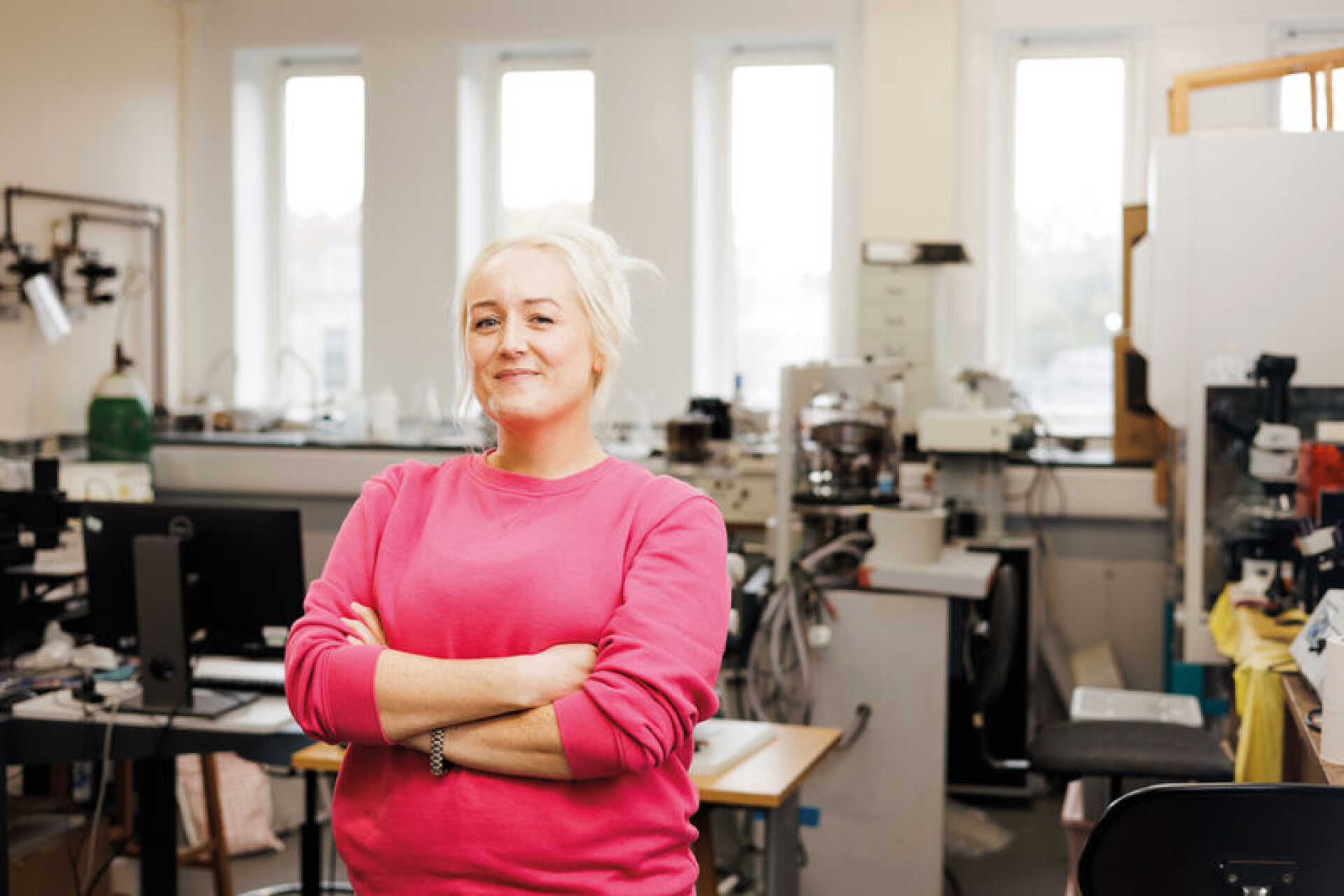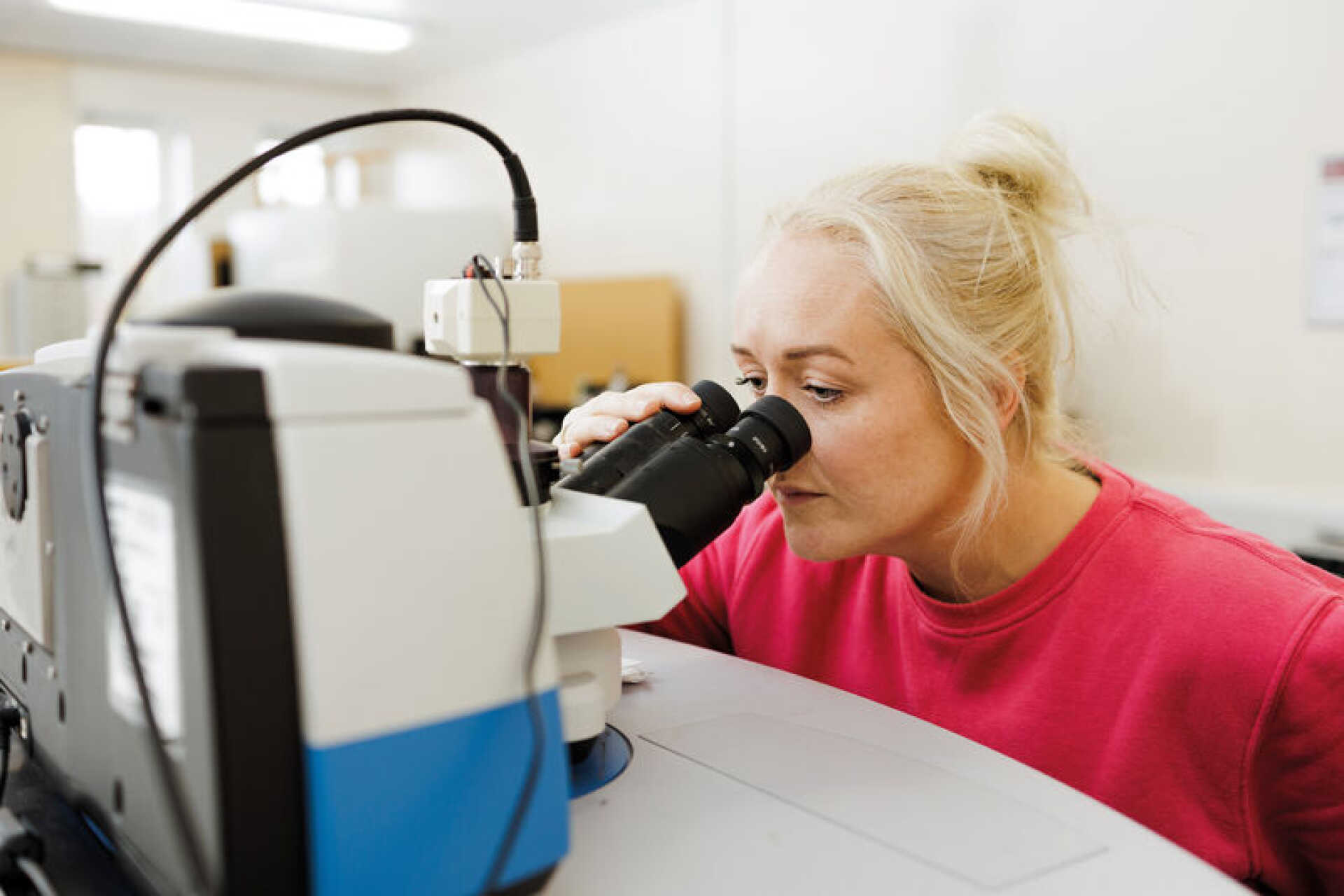
I wasn’t ready to leave studying behind and had been thinking about possible research topics. The idea I settled on involved analysing face make-up to see if it could be used as a reliable type of trace evidence. Anyone who’s ever tried on a white top in a shop will know how easily makeup is transferred!
I initially thought that by using Raman spectroscopy (a technique based on the interaction of laser light with molecular bonds in a material), I’d be able to create a spectral database that would allow me to match an unknown sample with a library of reference samples. The hope was that this would have allowed me to identify the product type, brand and even formulation of the product from its trace.
With research though, you don't always discover what you think you will. I soon realised that the composition of make-up is too complex and affected by too many external factors for this to be possible.
At first, I was devastated, but I knew my technique was robust and my results were accurate, so I took a step back and looked again at the research. I realised that the technique could be used to eliminate products that didn’t match, or to provide investigative leads, and with criminals getting wise to current forensic practices, being able to use new types of trace evidence could be really valuable. When you consider what a vast range of make-up products there are and how people often use multiple products to layer their make-up, there is the potential for some really interesting combinations. I now believe my work can help to improve the criminal justice process and that is a fantastic feeling.
“Be passionate about your research, you’ll find it easier to engage other people if you’re enthusiastic; it also helps to keep you going if things get tricky. Sign up for as many different opportunities as you can. Networking is so important and you never know who you might meet and how they could help you in the future.”

I’ve tried to get involved in as much as I can. Sharing an office with other PhD candidates is reassuring; whatever area they’re working in, similar issues come up so there’s a real camaraderie there.
I’ve also taken part in lots of Graduate and Researcher College events and was asked to present my research at the Bright Minds Symposium. I loved the challenge of explaining my work to non-scientists and talking about it in terms of the impact it could have in the wider world; it was very rewarding.
I’ve taught students throughout my PhD, both undergrads and postgrads; it’s interesting working with students who are at different stages in their learning. I really enjoy helping them to understand theories and giving them the skills and confidence they need for practical work.
How you work with your supervisor is key. My relationship with my supervisor is based on mutual respect, trust and understanding. My supervisor respects me as a researcher and she also respects that I have a life outside of university. She’s very supportive and even applied to the Royal Society of Chemistry for a researcher enablement grant, to help me in the final stages of my PhD.
The dynamic changes over time. At first it is very much a mentor/student relationship, then as you progress the gap narrows and you find you are telling your supervisor things they don’t know. Then you start to become the expert and in the end you become colleagues. In short, your supervisor facilitates you to become an expert.